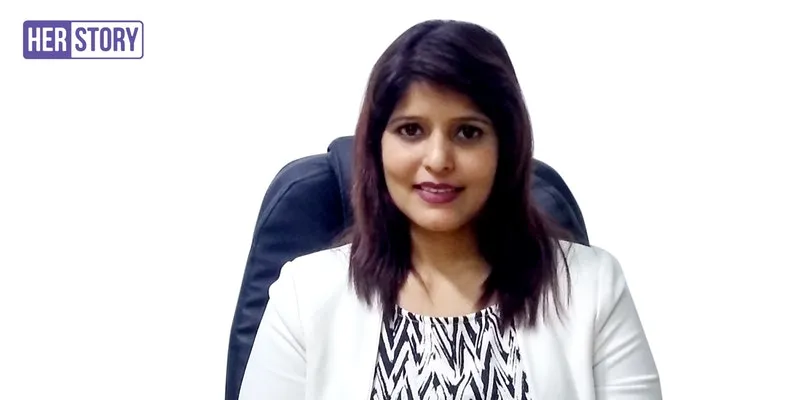Diet, fitness and weight loss for women on the go: insights from dietitian and wellness coach Sheryl Salis
Owing to the hectic life that many women lead today, staying fit and sticking to a healthy diet can be a challenge. In a Community Chat on the HerStory Women On A Mission Facebook group, Shery Salis, Founder, Nurture Health Solutions shares her insights.
Whether your are a student, employed, or a homemaker, finding the time and way to eat healthy and keep yourself fit can be difficult. With responsibilities and deadlines piling up, many sit in the same place for hours on end, resort to ordering in, and stock up on unhealthy packaged foods at home. However, making small changes and choosing healthier options is not as challenging as it may seem.
In a Community Chat on the HerStory Women On A Mission Facebook group, Sheryl Salis, a registered dietitian, wellness coach, and the Founder of Nurture Health Solutions, shares her insights on how even the busiest women can lead healthier lives.

Sheryl Salis, Founder, Nurture Health Solutions
Here are some excerpts from the conversation:
Q. There are a lot of people who want to quickly lose weight and try crash diets. Are such diets really worth it, and do they have any health value?
Sheryl Salis: I always believe and tell my clients/patients to follow a lifestyle which is sustainable. A diet which excludes many food groups may help you lose weight in the short term but is highly deficient in essential nutrients essential for healthy functioning of the body. You lose your health in the bargain. Seek professional help to lose weight the right way.
Q. People often debate about the keto diet. What exactly is it and is it really beneficial?
SS: Keto diets are getting very popular today. They exclude many food groups such as carb containing foods like milk, most fruits, cereals, pulses and sugar. If done under the supervision of a qualified dietitian, it can be followed for a short period especially if someone's weight has plateaued.
It is very important to undergo medical screening before embarking on such a diet as it can increase uric acid. It is not safe to follow if patients are on certain medications, pregnancy and lactating women. I would endorse a balanced diet which is low/moderate in carbs, high in protein and has good quality fats, as it is sustainable to follow in the long run.
Q. In an era where junk food is readily available in every possible form, I often find it difficult to completely avoid them regularly. How can I keep a balance in nutrition in that case?
SS: First ask yourself every time you crave such foods, if it's helping you fight or feed disease. If you have to consume such foods, moderation is key. Have them once a week when you are most active.
Keep healthy foods stocked up in your fridge, cupboards and drawers. This will help prevent unhealthy eating. Ensure that you are physically active. Diet and exercise go hand in hand.
Q. I’m currently on a diet trying to lose weight, and I’m on the heavier side, at around 80kg. What can I eat, apart from meat, that can help me successfully lose weight?
SS: Balance all the four wheels - diet, exercise, stress and sleep. All are equally important. Choose low carb protein rich options at eat meal which will keep you full longer. You don't need to have meat if you don’t like it. You can include pulses, egg, fish, nuts, soya, paneer, yogurt, tofu in your diet, which will help you meet your protein requirements.
Include whole grains, quinoa, barley and millets in your diet. Include pulses in the form of sprouts, chilla, or chana chaat, which will provide you with the energy and satiety. Ensure you are hydrated. You can sip on green coffee, green tea, or moringa green tea. Also, check your thyroid levels to rule out obesity because of a dysfunction of your thyroid gland.
Q. I have been trying to lose weight for many years, but in vain. I have tried many types of dieting and exercises. What is the ideal way of staying healthy and fit?
SS: First of all, don’t get bogged down and stressed about the weight. Make friends with it. Work towards leading a healthy lifestyle. Try and avoid eating out often; that is usually a big culprit. Eat more home-cooked food and watch your portions.
Include protein and fiber rich foods. Choose healthy fats such as nuts and cut carbs to half. Take a small plate, fill half the plate with veggies, quarter with pulses and the remaining with cereals. Start your meal with protein and fibre, such as buttermilk and salad.
Follow a lifestyle which is sustainable and do not fall prey to short term fixes. Sip on green tea or green coffee in between which will help boost metabolism and provide the necessary antioxidants. Keep physically active trying to clock in 10,000 to 12,000 steps each day. If not, choose an activity you like such as swimming, zumba, or badminton. Sleep for at least 6 to 7 hours everyday. Spend minimum time on gadgets. Work towards getting fit and not thin.
Q. What is a good calcium-rich diet for someone who is lactose intolerant?
SS: First, check your vitamin D levels. Include calcium-rich foods such as ragi, sesame seeds, amaranth, soyabean, cluster beans, and moringa. Couple a high protein diet with strength training.
Q. Is breakfast really the most important meal of the day, or is this a myth?
SS: It's a myth. Today, obesity and non communicable diseases are a big national concern, hence low calorie, nutrient-dense meals are important. Choose breakfast options which are nutritious, high in fibre and low on simple carbs. Exercise portion control.
Q. I work a desk job for 8-9 hours a day. What is an ideal diet for me?
SS:
Sitting is the new smoking. Ensure that you get up from your seat every 30 mins and stretch. Find ways to stay active.
Have carbs only in your main meals. Include whole grains, protein rich foods and healthy fats. Sip on moringa green tea or green coffee in between. Buttermilk, carrot cucumber sticks, fruits with nuts, protein bars, boiled egg, roasted chana with peanuts, and sprouts are also healthy mid-meal options.
Q. How can a college student living in a hostel with limited food options balance diet and exercise?
SS: Try and find ways to stay active. Stretch between lectures, climb up stairs, walk between classrooms and your hostel room, walk while you talk on the phone. This will help you clock in the desired 10,000 steps daily.
I understand that food is a challenge in hostels. Keep healthy options handy with you always. You do get ready-to-eat meals such a quinoa poha, millet upma, protein soups, protein bars. These are portion controlled, calorie counted and rich in nutrients.
You can also snack on makhana, jowar puffs, chana, and multigrain chiwda. You can also have boiled eggs at breakfast or as an evening snack.
To be part of more such conversations, join us on the HerStory Women On A Mission group on Facebook.
(Edited by Rekha Balakrishnan)











